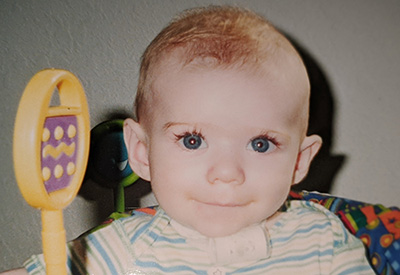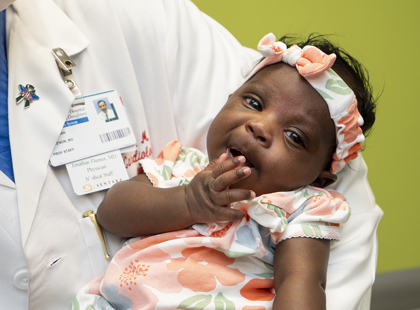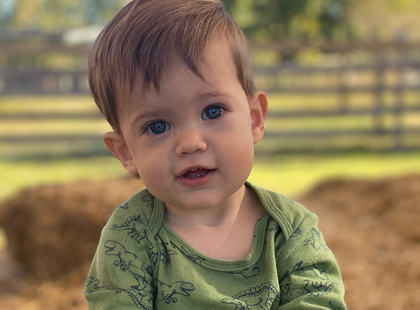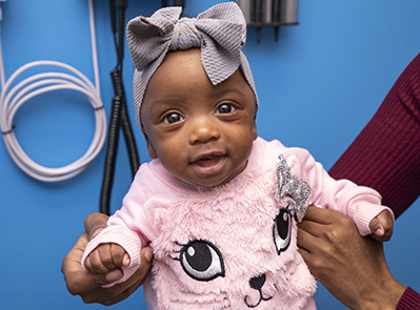
Benjamin VanVliet spent so many days of his childhood in the hospital, the 19-year-old college student can’t even put a number to it.
He was only 4 months old when he had his first open-heart surgery at CHKD, followed by surgery to reconstruct his windpipe, and then numerous procedures over the years to repair his pulmonary valve, which delivers blood from his heart to his lungs.
Recently, though, Dr. Michael Vance, a CHKD cardiologist, was able to conduct Ben’s latest heart fix in a less invasive way, using a catheter to thread a new valve into place without the need to crack open his chest – a significant improvement for recovery.
Dr. Vance has been in the vanguard of pediatric cardiologists across the country to start implanting the Harmony pulmonary valve. The valve, produced by Medtronic, was approved in March by the federal Food and Drug Administration as the first to treat pulmonary valve regurgitation in pediatric and adult patients.
In August, CHKD became the first hospital in Virginia to use this new catheter-based treatment. Dr. Vance has implanted the device in six patients, inserting the valve through a thin catheter into a vein in the patient’s groin or neck. The catheter is then guided into the right side of the heart and into the right ventricular outflow tract. Once the collapsed valve is released from the catheter, it expands on its own and anchors into place.
The CHKD patients have ranged in age from teens to a patient in her 40s. Each has done well, and appreciated the shorter recovery time in the hospital. Over the years, Dr. Vance has been among the first cardiologists in the country to use innovative, non-invasive approaches to heart repair.
“The results have been outstanding, not only in reducing recovery time, but allowing patients to go longer between the more invasive surgeries,” Dr. Vance says.

Benjamin VanVliet and his grandmother at CHKD before his Harmony valve procedure.
That is important to Ben, a Kill Devil Hills resident who is attending East Carolina University. He was born with an abnormally narrow windpipe that was shaped like an hour glass. He had open-heart surgery when he was 4 months old, at which time his doctors gave him a tracheostomy to help him breathe. When he was 2, he had surgery to reconstruct his windpipe.
He also needed several procedures to repair his left pulmonary artery, because the amount of blood flow increased as he got bigger. He was scheduled to have open-heart surgery this year to replace the pulmonary valve. But thanks to Medtronic, FDA approval, and Dr. Vance’s expertise with implanting catheter-delivered devices, the fix could be made without cracking open his chest. Ben was relieved, and also grateful that it could reduce the number of future heart repairs.
He said it went smoothly, and he was back on his feet sooner than past surgeries. Catherine VanVliet, his mother, said he spent one night in the hospital, much less than the four months he spent hospitalized after his first open-heart surgery at CHKD.
Dr. Vance said cardiology has been an exciting field to practice medicine, as technology and research continually find better methods of improving heart function. “It’s been fulfilling, like growing up in a revolution of technology where patients can go home the next day instead of spending days in the hospital.”
Written by Elizabeth Earley





